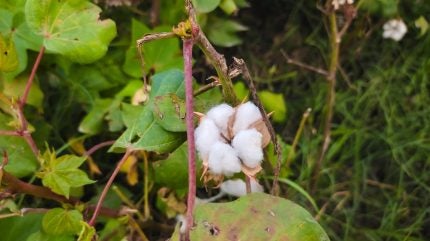
Under the terms of the subcontract, Applied DNA, together with its traceability partner, Isotech (a Stratum Reservoir company), will employ CertainT to conduct isotopic testing and analysis to support cotton traceability in Pakistan.
The financial terms of the subcontract were not disclosed.
Applied DNA explained the project engages with trace experts, global brands, Pakistan’s cotton sector, and worker organisations to design, implement, and assess the pilot trace tool to improve its future application and develop publicly available commodity-agnostic trace resources for enhanced due diligence.
The subcontract was said to have been issued in support of the Global Trace Protocol project, a US Department of Labour-funded initiative implemented by LRQA (known as ELEVATE during the project’s inception) that is designed to reduce child and forced labour in global supply chains through traceability.
Applied DNA said the company along with Isotech will use best practices in the isotopic analysis of raw materials and products at key points in the cotton textile value chain to align with the project’s overarching goals.
Some of the testing components include the use of isotope ratio mass spectrometry (IRMS) on samples from farms, gins, yarn spinners, and mills/manufacturing units identified by the project.
How well do you really know your competitors?
Access the most comprehensive Company Profiles on the market, powered by GlobalData. Save hours of research. Gain competitive edge.

Thank you!
Your download email will arrive shortly
Not ready to buy yet? Download a free sample
We are confident about the unique quality of our Company Profiles. However, we want you to make the most beneficial decision for your business, so we offer a free sample that you can download by submitting the below form
By GlobalDataCertainT will establish a baseline as part of the framework pilot project for isotope testing and analyses.
According to LRQA’s director of the Global Trace Protocol project Jeff Wheeler, new import regulations and legislation now require extra documentation to verify cotton origin and ensure that cotton does not come from high-risk sources.
Wheeler said: “The Global Trace Protocol project is developing traceability technology tools that provide greater transparency and integrity to textile value chains globally, including through our work with Applied DNA.”
Applied DNA’s vice president MeiLin Wan added: “Our CertainT platform employs isotope testing as well as DNA tagging and genomic testing as forensic authentication technologies to establish traceability to prove origin. Our recent announcement with Indus Apparel of isotope testing with DNA tagging showcases the scalability and accessibility of cotton authentication technologies that will also help Pakistan’s cotton industry to enable compliance with US import regulations and similar enforcement in other geographies.”
Applied DNA’s CertainT is a textiles traceability platform that uses forensic, multiple-proof-point evidence to enable source and authenticity verification of materials and products at any point as they are transformed through global supply chains.
LRQA is described as having decades of expertise in assessment, advisory, inspection, and cybersecurity services.
In 2021 Applied DNA collaborated with Stratum Reservoir (Isotech), a specialist in laboratory staple isotope analysis – a technique used for fingerprinting naturally occurring organic compounds such as cotton – to bolster cotton traceability research.



